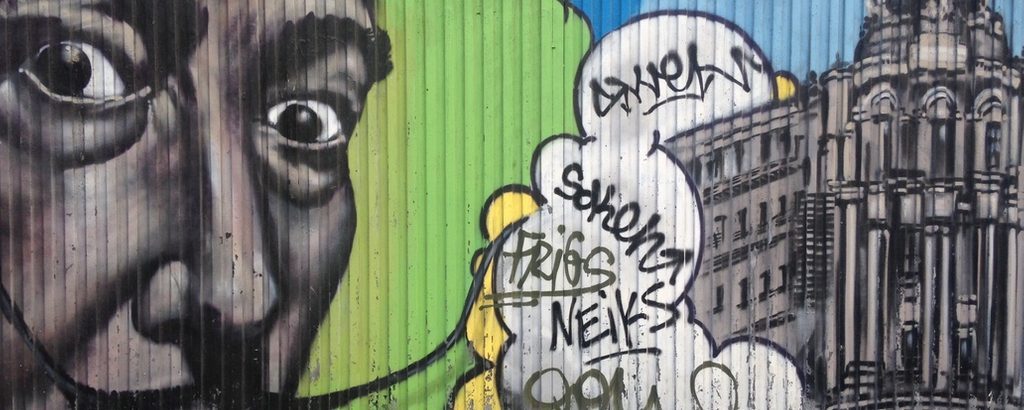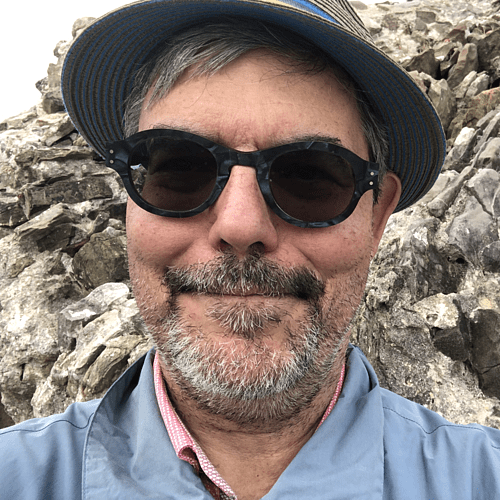A Discussion with Faculty Director Humberto Huergo


What inspired you to propose and plan the Spanish Studies in Madrid program? What did you want to accomplish? What makes this program different from other Spanish study abroad programs?
Madrid is truly an extraordinary city. I was 40 years old when I made my first visit there, and I can honestly say that it taught me the meaning of happiness and of sharing light with others in a city setting. I wanted to understand what it is about city living that promotes these transformative experiences.
The Spanish Studies in Madrid program is not your typical textbook-oriented learning experience; rather, it focuses more on learning how to see, hear, and engage with your surroundings in a new way. I want students to learn how to piece together the fleeting emotions and thoughts that they experience while walking in a city in order to better understand how their lives are affected by the urban experience. This program is a very experiential one in the sense that students will be asked to engage in a number of reflective, “real” exercises. Some of the concepts that we will reflect upon over the course of the program include learning how to view the world/people around us, how to move through a busy urban environment, and how to get lost.
What does a typical day look like on your program?
Students will take a number of different courses while on the Spanish Studies in Madrid program. These will meet 2-3 times a week and will be taught at the Universidad Complutense de Madrid (a very large, very urban school with a student body of ~250,000). Because each student will be living in homestays in and around the city center, they will be responsible for commuting to and from the university using Madrid’s extensive public transportation system. Learning how to navigate the bus/subway system is a crucial part of the city experience. One of the courses (titled “Theory and Practice of Urban Life”) will be taught by me, and two others (titled “Current Issues in Spanish Politics and Spanish Art Live, respectively) will be taught by Spanish professors/faculty at the university. A fourth mini-course (2 credits, titled “Navigating Madrid”) is aimed at helping students engage in authentic, practical conversations/interactions with native Spanish speakers in the community.
In addition to classes and coursework, students on the program will get to experience both Northern and Southern Spain during a set of planned excursions. Generally, when students commit to the program, their preconceptions about Spain pertain to the more touristy Southern region. But our first excursion will be to the lesser-known Northern region of Galicia, which is a beautiful, forested, rainy region. Students will spend two nights in a house surrounded by nothing but the wilderness of Galician pine forests; it is here that much of the initial bonding & relationship-forging between students occurs. They will then spend a third night in Santiago, the capital of Galicia.
Later into the program, the students will be taken on a second excursion, this time to Southern Spain. In previous years, this excursion has taken place in either Granada, Seville, or Cadiz. While exploring Southern Spain, students will have the opportunity to see the Aljambra, mosques, Arab baths, and engage in activities related to art history (among others).
Finally, a third excursion will take place in Toledo, the city where el Greco lived. Generally, the art history professor will lead this excursion. Students will visit Jewish Toledo, synagogues, and churches where many of el Greco’s paintings are still displayed.
On each excursion, students will also have the opportunity to explore and discover things on their own. If you are interested in music, find time to go see a performance at the theater. If you are interested in art or architecture, there are plenty of marvelous sights and museums to visit. If you want a taste of traditional Spanish culture, go watch a bullfight while snacking on some authentic Spanish food! I strongly believe that independent sight-seeing is important to travelling/studying abroad. If you are worried about spending 100% of your time around the same few Carleton students, don’t be. Because of the liberty students in the Spanish Studies in Madrid program have to make their own agendas, you will almost certainly be on your own for a portion of the program.
What does the housing situation look like, and what are the benefits of this living arrangement to students?
Students on the Spanish Studies in Madrid program will live with a native Spanish family in some part of downtown Madrid (generally no more than 20 minutes away from the university by public transit). Each student will be housed with a different family. Students will fill out a form prior to the program indicating their living preferences, and they will be placed with a family that accommodates their needs. I believe that the homestay experience is a key component of the program. Students will meet a diverse group of people through their homestays and will partake in very real, authentic interactions. Past program participants have told me that they learned a lot about Spanish culture, traditions, family life, and communication through their homestays.
What advice would you give to students to encourage them to study abroad during their Carleton career? What benefits do you see to the experience in general?The United States is a very peculiar country. I believe that you need to live abroad in order to fully recognize the different ways in which people around the globe live. Studying abroad will expose you to another way of being in the world (of relating to people, of viewing the value of public transportation, of living together with strangers, and of interacting civilly with people from different backgrounds/beliefs). You will gain a much more worldly perspective, and I promise you that your life will change for the better.
Humberto Huergo is a Professor of Spanish. He has been teaching at Carleton since 1988.